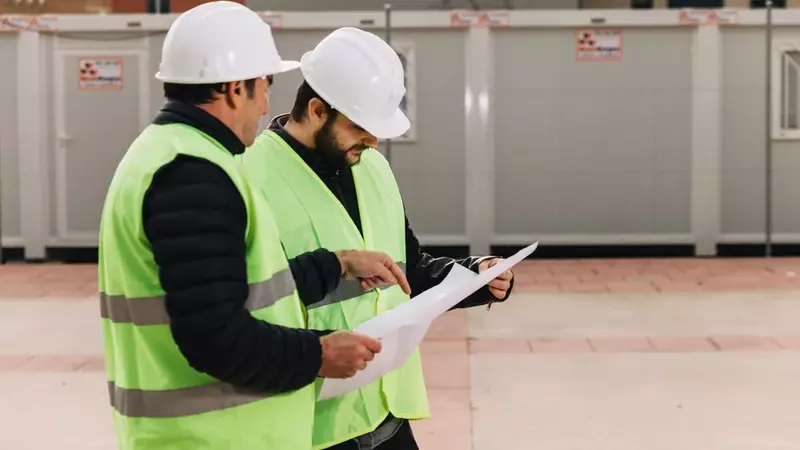The construction industry faces the constant challenge of managing and controlling costs to ensure project success. This article delves into 15 critical components of building cost control, providing a comprehensive guide for professionals in the field. From the initial stages of comprehensive project planning to the strategic project closeout, each component offers specific strategies and best practices aimed at optimizing resources, enhancing efficiency, and minimizing waste.
Emphasizing the importance of technology, skilled labor, sustainable practices, and effective communication, the article serves as a roadmap for implementing effective cost control measures in building projects.
1. Comprehensive Project Planning
Effective cost control begins with comprehensive project planning. This includes a detailed analysis of the project scope, timelines, resources, and budget. Accurate and thorough planning helps in identifying potential cost overruns early and sets a baseline for monitoring expenses throughout the project lifecycle.
2. Use of Technology and Software
Leveraging technology and software is crucial for efficient cost control. Tools like Building Information Modeling (BIM), project management software, and cost estimation software provide real-time data, enhance collaboration, and streamline various aspects of the construction process, helping to keep costs in check.
3. Regular Monitoring and Reporting
Regular monitoring and reporting of expenses against the budget is essential. This involves tracking actual spend, comparing it with the planned budget, and analyzing variances. Periodic financial reporting keeps stakeholders informed and facilitates timely interventions when deviations occur.
4. Foster Clear Communication
Clear communication among all project stakeholders is vital. It ensures that everyone is aligned with the project objectives, understands their role in cost management, and is aware of the project’s financial status. Effective communication helps in avoiding misunderstandings that can lead to costly errors.
5. Implement Value Engineering
Value engineering is a systematic method to improve the “value” of goods or products by using an examination of function. In construction, this means finding more cost-effective ways to achieve the same project objectives, often leading to significant savings without compromising on quality or performance.
6. Streamline the Procurement Process
Efficient procurement processes can significantly reduce costs. This involves selecting the right materials, equipment, and services at the best price. Bulk purchasing, negotiating with suppliers, and timely procurement can prevent project delays and reduce costs.
7. Invest in Skilled Labor and Training
Skilled labor is crucial for quality construction work. Investing in skilled labor and continuous training ensures high work quality, reduces rework, and increases productivity, all of which contribute to cost control.
8. Adopt Risk Management Practices
Risk management involves identifying, assessing, and mitigating risks that could impact the project’s budget. This includes financial risks, safety risks, environmental risks, and more. Proactive risk management helps in avoiding unexpected costs and delays.
9. Effective Change Order Management
Change orders are inevitable in construction projects. Effective management of change orders, including clear documentation, rigorous assessment of cost implications, and stakeholder approval processes, helps in controlling additional costs associated with project changes.
10. Sustainable Building Practices
Sustainable building practices not only contribute to environmental conservation but also can be cost-effective in the long run. Using energy-efficient materials, waste reduction techniques, and sustainable design principles can lead to operational cost savings.
11. Collaborative Contracting Models
Collaborative contracting models, such as partnering and integrated project delivery, align the interests of all parties and foster a team-based approach to managing costs. These models often lead to more efficient project execution and cost savings.
12. Utilize Construction Cost Database
A construction cost database helps in accurate budgeting and estimation. It provides historical cost data, material price trends, and labor rates, which are essential for realistic and reliable cost projections.
13. Quality Control Measures
Implementing quality control measures ensures that work is done right the first time. This reduces the cost and time associated with rework, material wastage, and delays due to quality issues.
14. Lean Construction Principles
Lean construction principles focus on minimizing waste and maximizing value. Techniques like Last Planner System, 5S, and Just-in-Time delivery can optimize resources, reduce waste, and contribute to effective cost control.
15. Strategic Project Closeout
A strategic project closeout process ensures that all financial aspects are settled, contracts are closed, and any final adjustments are made. This process helps in capturing lessons learned for future projects and ensures all cost-related matters are comprehensively addressed.
Conclusion
Effective cost control in construction is not just about cutting costs but optimizing resources and processes to achieve the best possible outcome within the budget. By embracing these 15 components, construction professionals can navigate the complexities of project management with greater confidence and precision. The integration of technology, a focus on skilled labor and training, sustainable building practices, and proactive risk management are just a few of the strategies that, when combined, create a robust framework for cost control.
As the industry evolves, these practices will not only ensure financial efficiency but also contribute to the overall success and sustainability of construction projects. Ultimately, the goal is to deliver projects that meet client expectations, adhere to the highest quality standards, and are completed within the allocated budget.
Latest Articles
